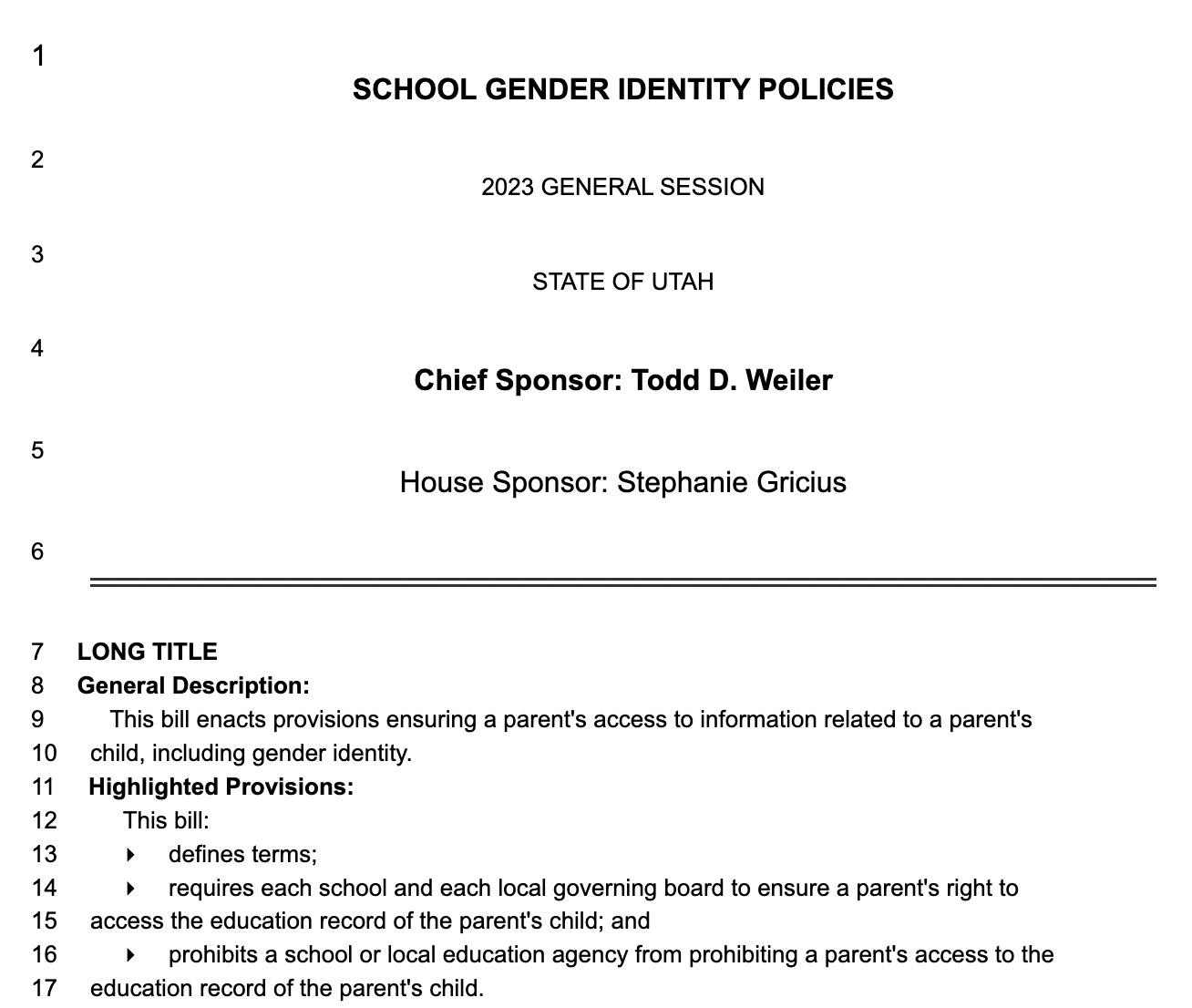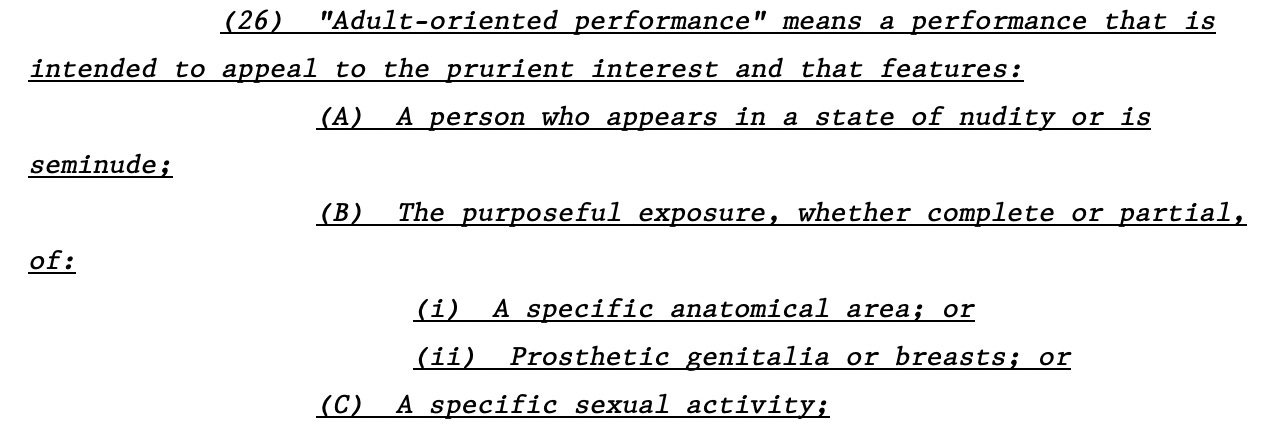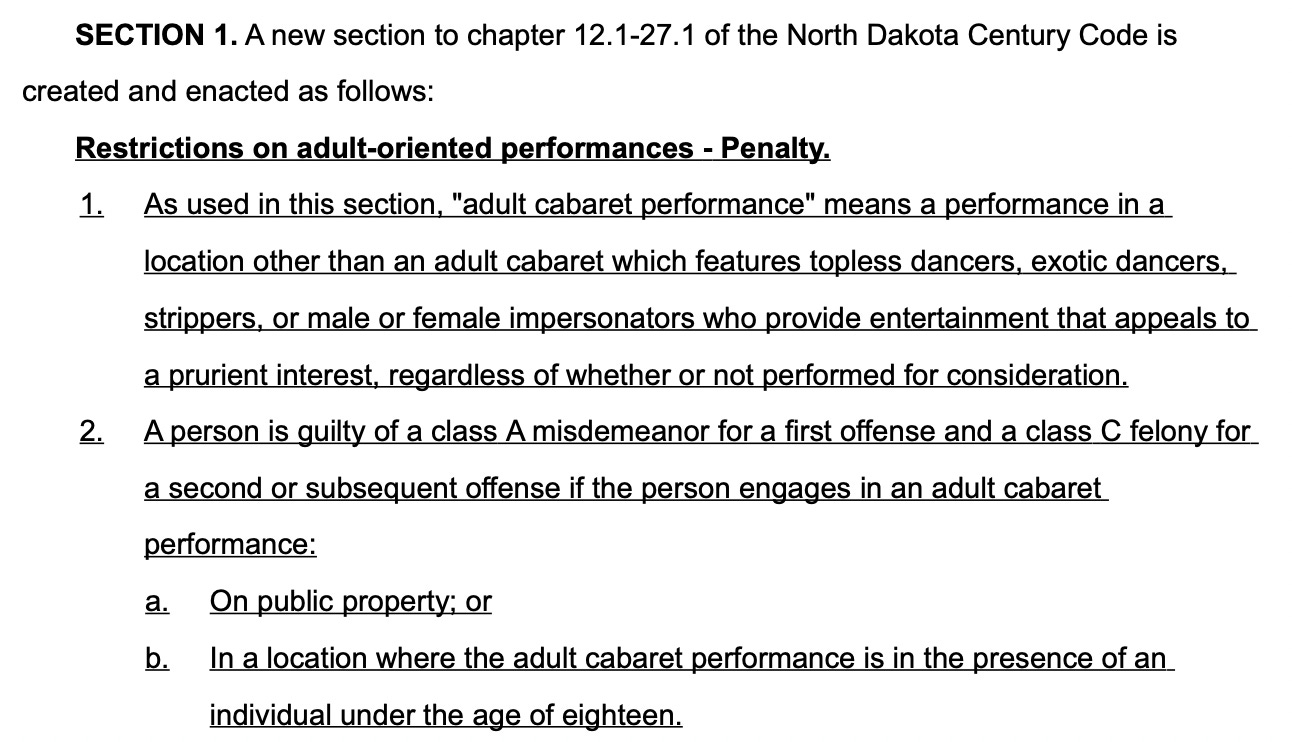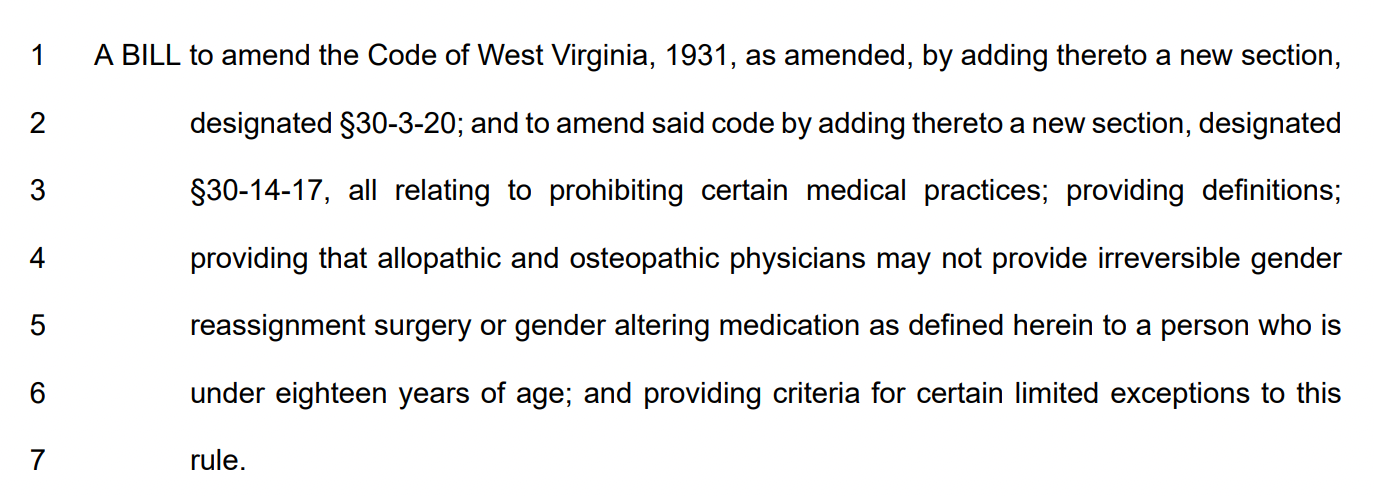An anti-trans bill that could lead to forced outing has passed the Utah legislature
In Arkansas, the anti-drag bill no longer bans drag but still has issues. Seven other anti-LGBTQ bills across the country, however, have also passed one legislative chamber, per the ACLU tracker.
The Utah legislature has passed a second anti-transgender bill, this one restricting the ability of children to identify as transgender in school without risk of their parents being able to access to that information.
The bill, S.B. 100, declares a parental “right” to access information in their child’s education record — including regarding gender identity — and bars schools from making any changes to a child’s gender identity in the child’s record without parental consent.
The Senate concurred with a House amendment to the bill on Feb. 3. It had not, as of Sunday night, yet been sent to Utah Gov. Spencer Cox, who already signed one anti-trans bill into law this year.
S.B. 100, however, is only one of the anti-LGBTQ bills quickly advancing in legislatures across the country.
According to a Law Dork review of the ACLU’s state legislative tracker, eight other anti-LGBTQ bills from six states have already passed one legislative chamber and moved to the other chamber.
Read on for a look at all eight bills and where they stand.
There was a positive development on Feb. 3 for one of the eight bills, S.B. 43 in Arkansas, which Law Dork covered in January after it initially passed the state’s Senate.
As Erin Reed covered in her newsletter on Feb. 3, the bill was significantly watered down in the House.
The removal of drag from the bill, as Reed notes, is good news. The revised bill, however, is still a bit of a mess. For those who read the initial Law Dork report on this legislation, you’ll know that one of my issues with the bill was that “[a]ny drag performance, under the bill, would become an adult-oriented business.”
Well, the revised bill doesn’t just get rid of its explicit attack* on drag; it also fixes that issue. Rather than defining drag as a business, the new version of the bill creates a new subsection for “[a]dult-oriented performance.” This language also tries to be much more narrow about what behavior it is addressing, but it uses concerning, vague language (at least) twice.
First, it applies to “seminude” performers, which, unless defined elsewhere, could be defined in many ways. Additionally, the reference to exposure of “[a] specific anatomical area” is completely undefined. It could mean the purposeful exposure of your elbow, by my read, and would make that a covered “adult-oriented performance” so long as the performance is “intended to appeal to the prurient interest.”
[* = Additionally, I should have expanded on my language that the bill gets rid of its “explicit attack” on drag. Subsection (26)(B)(ii) — covering exposure of “[p]rosthetic genitalia or breasts” — is the portion of the bill that would pull in certain drag performances. Again, though, it would be limited to where the performance is “intended to appeal to the prurient interest.” (This paragraph was added as an update at 12:30 p.m.)]
The location restrictions for such performances do appear to have been significantly narrowed. Rather than creating new, vague restrictions for all adult-oriented businesses, as the bill did initially, the new version provides narrowed restrictions applying only to the narrowed definition of adult-oriented performances.
The revised bill is up for consideration in the full House as soon as Monday afternoon. If passed as amended by the House committee (or with any amendments made by the full House), the Senate would need to agree to the changes for the bill to go to Gov. Sarah Huckabee Sanders.
The other seven anti-LGBTQ bills to have passed one chamber already include a third bill in Utah; a second bill in Arkansas; two bills in North Dakota; and one bill each in West Virginia, Mississippi, and Wyoming.
In Utah, S.B. 93 would bar birth certificate gender changes for anyone younger than 18. The bill passed the Senate in January, but the House has not taken action thus far beyond introducing the bill in that chamber.
In Arkansas, H.B. 1156 would bar trans-inclusive restroom and other policies in schools. The bill’s text goes further, however, setting minimum $1,000 fines that would apply from superintendents to individual teachers for violations and creates a cause of action for parents — allowing parents to sue school districts for any alleged violations. The bill passed the House on Feb. 1. That same day it was read twice in the Senate and referred to the Education Committee.
In North Dakota, two bills passed the House but have not seen movement at this point in the Senate.
The first, H.B. 1139, would define “sex” for birth certificate purposes and passed the House in mid-January. Based on The Dakotan’s coverage of the House discussion, the bill appears to do little else. The Senate has not taken any action on the bill since receiving it from the House.
The second North Dakota bill, H.B. 1333, would be a partial drag ban, but it actually would go much further, creating a new crime that would apply beyond drag. The bill would add this new section to the “Obscenity Control” section of the state code. It would make it a crime to “engage[] in an adult cabaret performance” — where that includes “topless dancers, exotic dancers, [and] strippers,” as well as “male or female impersonators who provide entertainment that appeals to the prurient interest,” i.e., drag — in public or “in the presence of an individual under the age of eighteen.”
The bill was passed by the House on Jan. 26 and received in the Senate on Jan. 27. As with the other North Dakota bill, the Senate is yet to take any further action.
A West Virginia bill, H.B. 2007, would ban gender-affirming medical care, including puberty blockers and hormones, from being given to transgender minors.
Unlike the Utah bill signed into law earlier this year, the text of the West Virginia bill makes no exception for those trans minors already receiving care. The passed the House overwhelmingly on Feb. 3, at which time it was sent to the Senate.
In Mississippi, H.B. 1125, which also would ban gender-affirming medical care for minors and was highlighted previously at Law Dork, remains pending in the state’s Senate after January passage in the House.
The final bill comes out of Wyoming, and it is a combination of aspects of Utah’s H.B. 100 parental “rights” bill and Florida’s “Don’t Say Gay” law (which is, formally, the “Parental Rights in Education Act”).
Wyoming’s S.F. 0117 is called the “Parental rights in education” bill, and it would both limit instruction “on sexual orientation and gender identity” and create a broad set of rules relating to parental access to information regarding their child’s “mental, emotional or physical health or well‑being.” As part of those rules, parents would be given the ability to file a lawsuit to stop a claimed violation of the law if the school doesn’t address parental concerns.
The bill passed the Senate on Jan. 27, at which time it was sent to the House.









I'm fascinated by the concept of "prurient interest." WHOSE prurient interest? Since some people have shoe fetishes, could a Nordstrom fashion show involving shoes be considered an adult-oriented performance? How does a drag story hour appeal to a prurient interest, any more than a person dressed up as, say, a mouse with round ears does--after all, some folks are into bestiality.
As to laws prohibiting treatment of minors for trans-connected issues, has anyone looked into partial emancipation of at least the older minors as a way of avoiding (or perhaps flipping off) such restrictions?
Republicans are setting themselves up for an even bigger loss in 2024